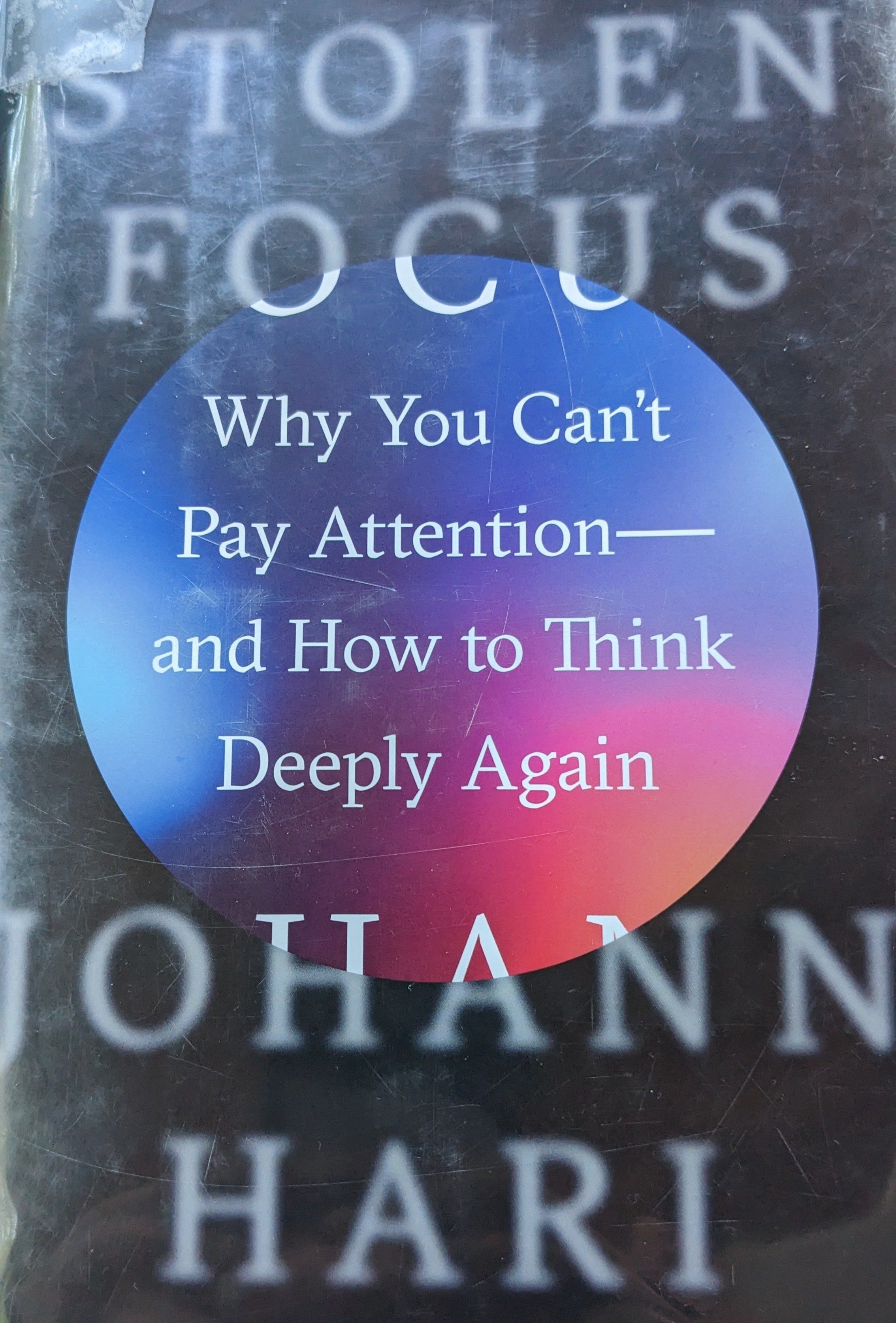Why you should be outside instead of reading this blog post
I have previously shared a graphic of books my book club has read over the years. This month we’re reading this book about how the algorithms of media companies are designed to grab your attention and hold it. They are NOT trying to inform you, they are trying to get your attention, full stop. With your attention they can sell ads, encourage you to buy things, cut into your critical physical and psychological need for sleep, and your inability to stop being engaged is their business model. If you find it hard to “disconnect”, it is because the algorithms are using brain science to keep you hooked. Kudos, thumbs up, likes, followers, can you say dopamine hit? Endless scrolling is soooo different than reading an actual book because you don’t get a natural pause that you can use to stop your engagement. The physical act of turning a page gives your mind an ability to pause, reflect, absorb, maybe even learn, and make predictions which enhances reading comprehension. Infinite scroll does not do that. There are particularly damning comments in the book about Facebook, how they were given ideas by coders about how to get people to actually engage with their Facebook followers more deeply, or even In Real Life (IRL!), like asking Facebook, “who is nearby now that I could hang out with?” But the leadership didn’t want you to check in, get information, then drop off, they wanted your ongoing attention, that’s it.
There has been a lot of information in the media, some of it conflicting, about the affect of social media on teen girls. This book too quotes some of the studies that say it is toxic, more so than to teen boys. But regardless of how much that is true the bigger loss due to screen time is “free play” time. I was just mentioning to my wife the other day that the only way I know that we have kids living in the neighborhood is when I see them waiting for the bus, or driving or biking to school. Otherwise the kids are not playing outside much, they are not wandering around, they are not having spontaneous play, they are not getting written up in the Transcript and described as Hooligans, as was common last century. And as a result, they are not learning social skills or toughness or resilience. The world is safer now than almost any time in history. Yet we live in fear. Why? Because algorithms have discovered that fear is more engaging than whatever you want to call its opposite. We are exposed to negative news, and don’t have enough social interactions, in person, to offset the drumbeat of negativity.
Just as the government had to mandate the removal of lead from paint and gasoline, which had known toxic affects on people’s brains, so too we may have to have the algorithms changed to eliminate the focus on attention. A subscription model, while not as nice as “free” services, at least will require benevolent actors in the marketplace and a realization that our free apps and online services are coming at an insanely high price for our health.
Disconnecting as an individual, turning off notifications, creating time for yourself to be disconnected are all good, but the pernicious nature of attention seeking algorithms is not that easy at a societal level to overcome. Sometimes government has a regulatory role that is important. It is hard to fathom that seat belt use had to be mandated and people fought against it. Just to be clear, I’m not saying control the content, I’m saying control the algorithms and pricing models that steal our attention. If you don’t believe me, read the book, it’s got plenty of good anecdotes to keep your….focus.
